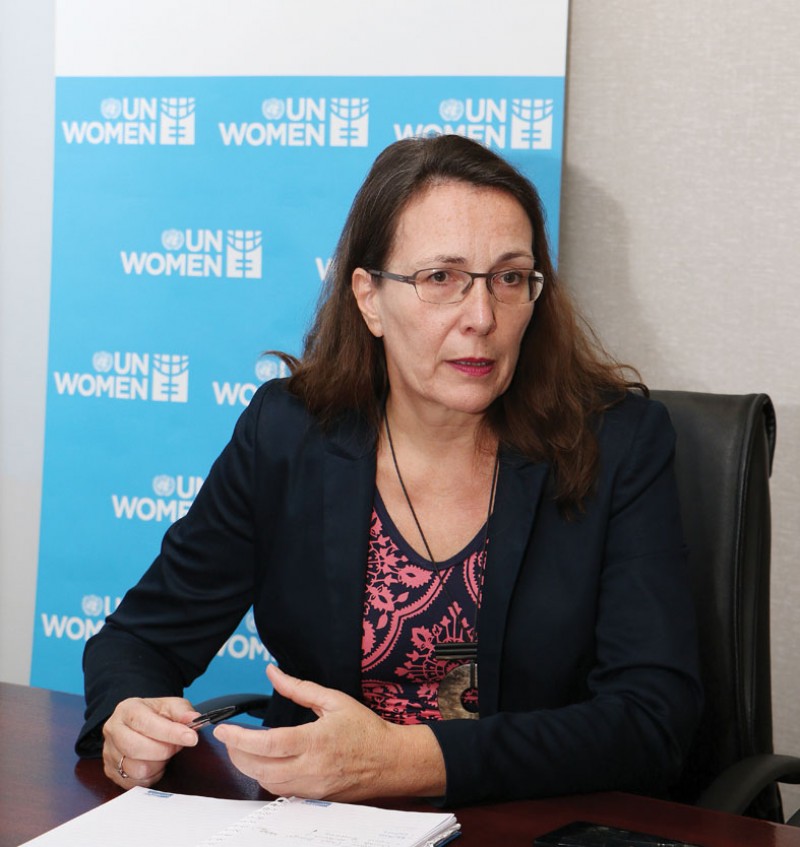UN Women prioritises gender parity in politics
Baboki Kayawe | Thursday April 14, 2016 14:47


UN Women country programme manager, Karin Fueg reiterated the need for gender parity in development.
The agency has the mandate to coordinate gender equality and women empowerment within the UN and support member states to advance the same. Like other commentators before her, the UN official said it is a concern that while the country fares well in other sectors, women political participation was lagging behind.
She said it is clear that Botswana has made tremendous progress towards realising the Millennium Development Goals (MDGs) achieving gender parity in education and that women are well represented in the public and private sector.
Furthermore, Fueg said that Botswana has “conducive legislation and policies” that need to be implemented. Moreover, she called for the implementation of special measures or affirmative action in favour of women. In addition, she described the need to increase the eight percent women’s representation in Parliament.
“In a nutshell, Botswana has laws and legislation to address gender and women’s empowerment. It is crucial to ensure that the impact of these policies and legislation is felt especially by women,” said Fueg.
In her view, the women movement seems to have lost its spark which she attributes to an inter-generational gap and consequently the absence of a cohesive dialogue in which women activists could share lessons with young women leaders, with the objective of joining forces towards strengthening the women movement.
“At such fora, the younger generation can share notes with women leaders as well as communicate their women agenda.
“There are many ways that can be employed to promote women’s participation and supporting women movements as well as political parties commitment to help women who aspire to contest for political office,” she said.
Fueg hopes the country signs the revised SADC Gender Protocol as she believes there is “political will and government is determined to ensure gender equality”. “I am very hopeful that it will be signed,” Fueg stressed.
When President Ian Khama assumed the chairmanship regional block last August, the SADC Gender Protocol Alliance summit, held in Gaborone, pressured Botswana to sign the Gender Protocol. Still, Botswana, as had happened before, insisted it was still studying the document. Fueg argues that women economic empowerment needs to be addressed given the many implications to women lives. She says Gender Based Violence (GBV) for instance is a consequence of women economic dependencies. The UN official further says this complex social issue requires a multifaceted response.
“GBV is a complex matter, and it is important to have an integrated support programme that coordinates all actors from the legal sphere, economic, health and education front,” she said.
UN Women is currently in the process of setting up office in Botswana. At the invitation of the Government of Botswana, the UN Women will strengthen the coordination on gender equality and women’s empowerment within the UN Development Partnership Framework.
“The UN is already implementing a joint programme on GBV and gender mainstreaming which has shown impact in the past,” Fueg said.
Presently UN Women Botswana is at the draft stage of developing the country strategy, which is soon to be validated by stakeholders in the gender sector. The UN Women country strategy will be aligned to Vision 2036 and the 11th National Development Plan.
